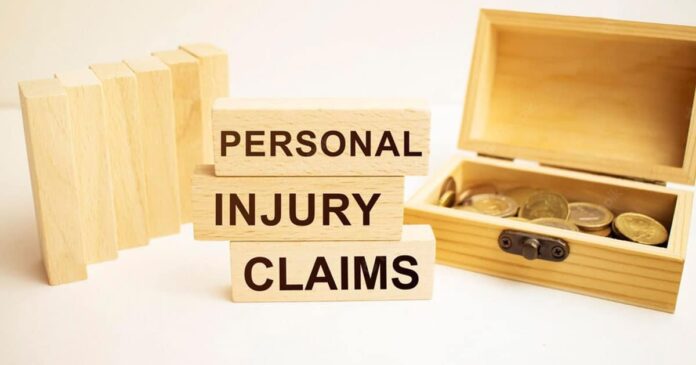
Personal injury claims can be a complex and daunting process, especially in 2024, as the legal landscape evolves. If you’ve been injured due to someone else’s negligence, understanding how to navigate these claims is crucial to ensuring you receive the compensation you deserve. This guide will provide an in-depth look at the top strategies to maximize your compensation for personal injury claims in 2024, focusing on SEO-friendly content that aligns with Google AdSense criteria.
Understanding Personal Injury Claims
A personal injury claim arises when an individual suffers harm due to another party’s negligence or intentional conduct. Common examples include car accidents, slip and fall incidents, medical malpractice, and workplace injuries. The primary goal of a personal injury claim is to recover compensation for medical expenses, lost wages, pain and suffering, and other related costs.
Key Changes in Personal Injury Law in 2024
2024 has seen significant changes in personal injury law that could impact the claims process. Some of these changes include:
- Increased Compensation Caps: Several jurisdictions have raised the compensation limits for personal injury claims, particularly for non-economic damages like pain and suffering.
- Stricter Evidence Requirements: Courts are increasingly demanding more substantial evidence to substantiate claims. This includes comprehensive medical records, detailed accident reports, and expert testimonies.
- Revised Statute of Limitations: Some states have adjusted the time limits for filing personal injury claims. It’s essential to be aware of these changes to ensure you file your claim within the allowable period.
Top Strategies to Maximize Your Compensation
To maximize your compensation in a personal injury claim, consider the following strategies:
1. Seek Immediate Medical Attention
The first and most critical step after sustaining an injury is to seek immediate medical attention. Not only is this crucial for your health, but it also serves as essential evidence in your claim. Medical records provide a clear link between the incident and your injuries, making it harder for the opposing party to dispute your claim.
2. Document Everything
Documentation is key to building a strong personal injury case. Here’s what you should document:
- Medical Records: Keep detailed records of all medical treatments, prescriptions, and therapy sessions.
- Incident Reports: Obtain a copy of the police report if applicable. If the injury occurred at work, ensure an official workplace injury report is filed.
- Photographs and Videos: Capture images and videos of the accident scene, your injuries, and any property damage.
- Witness Statements: Gather contact information and statements from any witnesses present at the scene.
3. Hire an Experienced Personal Injury Attorney
Navigating the complexities of personal injury law requires expertise. Hiring an experienced personal injury attorney can significantly increase your chances of securing a favorable settlement. A seasoned attorney will know how to negotiate with insurance companies, gather necessary evidence, and represent your best interests in court if needed.
4. Avoid Quick Settlement Offers
Insurance companies often aim to settle claims quickly and for as little money as possible. While it may be tempting to accept the first offer, especially if you are facing mounting medical bills, it’s important to consult with your attorney before agreeing to any settlement. Initial offers are often much lower than what you could potentially receive.
5. Understand Your Claim’s Worth
Understanding the true value of your claim is crucial. Compensation is typically divided into two categories:
- Economic Damages: These include quantifiable losses such as medical expenses, lost wages, and property damage.
- Non-Economic Damages: These cover intangible losses such as pain and suffering, emotional distress, and loss of enjoyment of life.
An experienced attorney can help you calculate the full extent of your damages to ensure you’re not undercompensated.
6. Be Cautious with Social Media
In today’s digital age, social media can significantly impact your personal injury claim. Insurance adjusters and opposing counsel often scour social media profiles for evidence that could discredit your claim. Avoid posting about your accident, injuries, or any activities that could be misconstrued as inconsistent with your claims.
7. Maintain Consistent Communication with Your Attorney
Regular communication with your attorney is vital. Keep them updated on your medical progress, any new evidence, or contact from the opposing party. This ensures your attorney is well-prepared to adjust your strategy as needed.
8. Prepare for Potential Court Proceedings
While most personal injury claims are settled out of court, some may proceed to trial. Being prepared for this possibility can help strengthen your case. Work closely with your attorney to understand the trial process and what to expect.
Common Mistakes to Avoid in Personal Injury Claims
To maximize your compensation, avoid these common pitfalls:
- Delaying Medical Treatment: Waiting too long to seek medical attention can weaken your claim by allowing the opposing party to argue that your injuries were not severe or were caused by something other than the incident.
- Failing to Follow Medical Advice: Not adhering to your doctor’s recommendations can be used against you to suggest that you are not as injured as you claim.
- Providing Recorded Statements Without Legal Counsel: Insurance adjusters may ask for recorded statements that can be used to minimize your claim. Always consult with your attorney before providing any statements.
The Role of Insurance Companies
Insurance companies play a significant role in personal injury claims. Understanding their tactics and how they operate is crucial to navigating your claim successfully. Insurers often employ strategies to minimize payouts, including disputing liability, downplaying injuries, and offering low settlements.
Tips for Dealing with Insurance Companies
- Stay Calm and Professional: Keep all interactions with insurance adjusters polite and professional. Avoid becoming emotional or angry, as this could be used against you.
- Provide Only Necessary Information: Stick to the facts and provide only the information necessary to process your claim. Avoid giving personal opinions or speculative statements.
- Keep Detailed Records of All Communications: Document all communications with insurance companies, including the date, time, and content of conversations.
Conclusion
Navigating personal injury claims in 2024 requires a strategic approach, attention to detail, and the right legal support. By understanding the changes in personal injury law, implementing the strategies outlined above, and avoiding common mistakes, you can significantly increase your chances of maximizing your compensation. Remember, the key to a successful claim is thorough preparation and having a knowledgeable attorney by your side.




